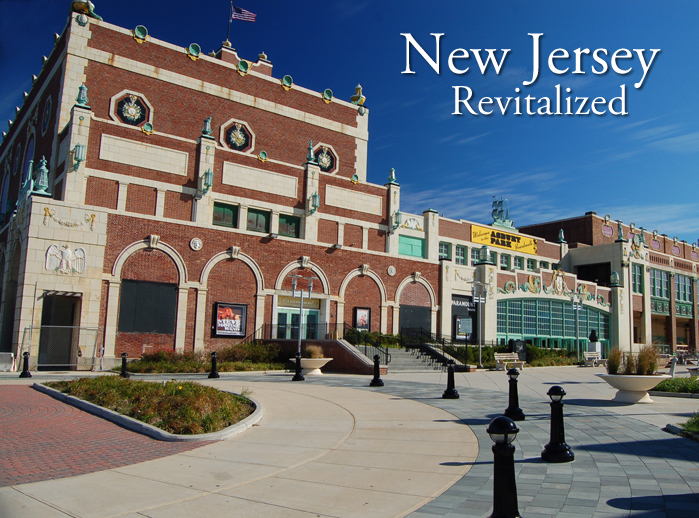When Gov. Patrick Quinn of Illinois signed legislation in 2011 raising the state’s corporate income tax by two-thirds, Gov. Christie was quick to react.
He vowed to travel to Illinois to persuade businesses there to relocate to the Garden State, even though New Jersey’s corporate income tax was nearly the same.
Hard-fought interstate trade wars have always been part of the landscape for governors and state legislators, who boast about the competitive merits of their states as they battle for jobs.
But now, the competition, at least in New Jersey, is about to intensify.
The Senate is moving toward final adoption of an overhaul of the state’s economic-development programs targeting billions of dollars in tax incentives to companies that locate, expand, or engage in other activities in New Jersey creating job growth.
What is drawing the most attention about the plan, sponsored in the Senate by Raymond Lesniak (D., Union) and Donald Norcross (D., Camden) and in the Assembly by Albert Coutinho (D., Essex), is that it effectively makes most of the state one large economic-development zone.
Its legislative architects, who spent much of the last year crafting the measure with Christie’s staff, say it will give New Jersey a powerful economic lure for employers.
“I am confident that this will generate tens of thousands of new jobs over the next few years,” said Coutinho, who holds an MBA from New York University. “This is a very significant piece of legislation with a lot of implications.”
But the measure has environmentalists up in arms, and their push-back came close to derailing the measure when it first came up for a vote June 27 in the Assembly.
“This is nothing but sprawl-fare, corporate welfare subsidizing overdevelopment and paving over environmentally sensitive areas,” said Jeff Tittel, director of the New Jersey Sierra Club. “This is going to be one of the most generous [tax-incentive plans] in the country.”
Nationwide, the use of tax incentives by states intensified in response to the market collapse of 2008 and 2009 and the ensuing recession. Since 2010, according to Good Jobs First, a left-of-center policy-analysis and advocacy group that is critical of tax-credit programs, New Jersey has approved at least $979 million in business-incentive tax credits.
The Senate had amended the original tax-credit bill, which placed substantial geographic restrictions on where the tax incentives would apply, to include large areas of sensitive land in the southern and northwestern portions of the state. Before the bill came up for a vote, the Assembly caucused for hours over the measure, with some members saying it would direct development away from urban areas to unspoiled regions.
The bill was amended to restore some environmental protections, including a requirement for environmental-impact assessments on projects funded through the program, but it left unchanged the expanded geographical scope.
The Senate is expected to give the measure final passage the next time it convenes, likely within a few weeks, and Christie is expected eventually to sign the measure.
The program, which calls for up to $175 million in tax credits for residential construction in Camden, builds on several economic-development programs providing tax credits and tax-exempt financing to qualified projects. In the past, these programs have been largely targeted to the state’s largest cities, including Camden.
But the Economic Opportunity Act, as the bill is known, would greatly expand the geographic scope while still favoring urban areas by offering more favorable terms in those places.
Some projects in the state’s two sprawling preservation zones, the Pinelands in South Jersey and the Highlands in the northwest, also would qualify for assistance, but the bill’s sponsors say the program would be restricted in those regions. Other rural areas that were included won’t see heavy development pressure simply because they are too far away from major roads and urban centers, they maintained.
Tittel is unpersuaded.
“If those businesses are not going to move to Salem County or Gloucester County, why have [the tax incentives] there?” he asks.
Coutinho said the reason is that there was a need for a more broad- based package of incentives. There are small to medium-size businesses that already exist in undeveloped regions, and policymakers believed the right mix of incentives would spur job creation. To do that, regions were added and the threshold to qualify for assistance was dropped from a minimum project size of $25 million to as little $1 million.
Legislative sources said that lowering the qualifying threshold was one way to increase the competitiveness of South Jersey, where fewer projects typically have qualified because costs are lower.
Under the bill, the state would have two business-tax incentive programs, called the Economic Development and Growth program and Grow New Jersey. The former would focus on capital projects, which produce a spurt of short-term construction employment, and the other on dispensing tax breaks for companies that expand operations and add to the workforce.
Both programs permit employers to take substantial credits against corporate income taxes, and on capital projects, businesses can recapture up to 40 percent of costs through the favorable tax treatment.
The program favors industries such as high tech that offer high average compensation. It bars subsidies for retail, where wages are low.
Critics such as Tittel say the incentives are a zero-sum game that generates little in the way of additional jobs but creates big tax breaks for employers at the expense of states’ tax bases.
Coutinho and other supporters of the bill insist that the benefits will soon be apparent. He said that he surveyed many business leaders and that they told him the program would create jobs and bring new employers to the state.
“This isn’t some ivory-tower professor or blowhard politician,” he said of the feedback. “It is a very big deal. I think it is the most comprehensive overhaul of our economic incentives in the history of the state.”
———————–
Copyright 2013 – The Philadelphia Inquirer
Thanks for reading CPA Practice Advisor!
Subscribe Already registered? Log In
Need more information? Read the FAQs




